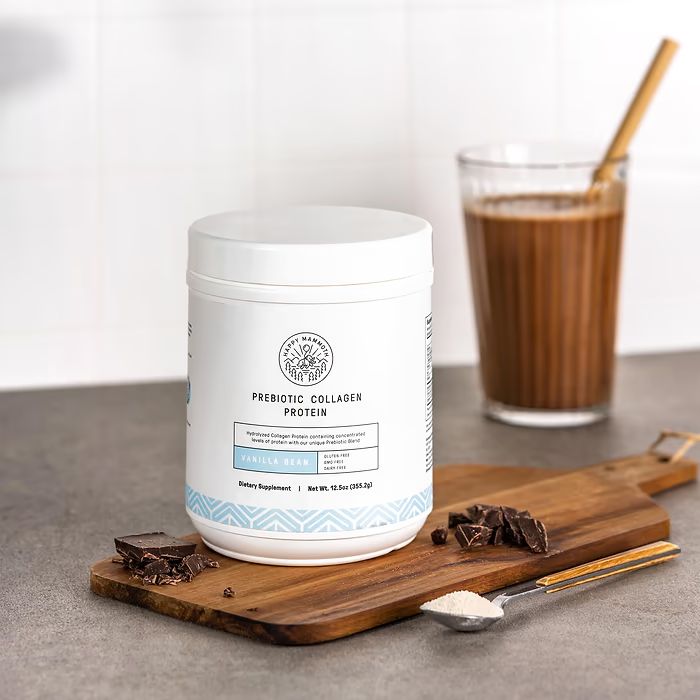In an age where wellness takes center stage, the buzz around gut health is louder than ever. For those embracing a plant-based lifestyle, the quest for maintaining a balanced microbiome can be both exciting and daunting. Enter vegan probiotics—nature’s tiny warriors armed with the power to bolster digestive health and promote overall vitality without compromising ethical principles. This article sets out to explore the best vegan probiotics available today, illuminating how they can seamlessly integrate into a plant-based diet, enhance nutrient absorption, and support your body’s natural defenses. Whether you’re a seasoned vegan or simply curious about incorporating more plant-derived options into your routine, discover how these remarkable supplements can help you achieve a flourishing gut and vibrant well-being.
Exploring the Importance of Probiotics for Plant-based Diets
Incorporating probiotics into a plant-based diet is crucial for maintaining a balanced gut microbiome. While plant-based foods are rich in dietary fiber and essential nutrients, they can sometimes lack specific strains of beneficial bacteria that aid digestion and overall gut health. Probiotics, which are live microorganisms found in various fermented foods and supplements, can provide these missing elements, helping to enhance nutrient absorption and support immune function. A diverse gut microbiome is key to achieving optimal health, and including probiotics can assist in fostering this diversity, leading to improved digestion and decreased bloating.
There are several vegan-friendly sources of probiotics that can seamlessly integrate into a plant-based lifestyle. Consider adding the following options to your diet:
- Kefir made from coconut or almond milk: A dairy-free alternative loaded with beneficial bacteria.
- Fermented foods: Items like sauerkraut, kimchi, and miso are not only rich in probiotics but also offer a vibrant flavor boost to meals.
- Probiotic supplements: Available in various formulations, these can be especially useful for individuals who may not consume enough fermented foods.
To better understand the strains commonly found in vegan probiotics, here’s a simple comparison table:
| Probiotic Strain | Benefits | Sources |
|---|---|---|
| Lactobacillus plantarum | Aids digestion and reduces inflammation | Fermented vegetables |
| Bifidobacterium bifidum | Supports immune system and gut health | Probiotic supplements |
| Lactobacillus acidophilus | Promotes nutrient absorption | Almond milk kefir |

Top Vegan Probiotic Sources to Enhance Your Gut Microbiome
When it comes to enhancing your gut microbiome on a plant-based diet, there are numerous delicious vegan probiotic sources to consider. Fermented foods are a powerhouse of beneficial bacteria that can support digestive health. Some top contenders include:
- Kefir: Made from fermented plant milks such as coconut or almond, kefir is loaded with probiotics.
- Kimchi: This spicy fermented vegetable dish is not only flavorful but also a vibrant source of probiotics.
- Sauerkraut: fermented cabbage that adds a tangy flair to meals while contributing to a healthy gut.
- miso: A fermented soybean paste that is a staple in Japanese cuisine, perfect for soups and dressings.
- Tempeh: A fermented soybean product that serves as a protein-rich meat alternative, packed with probiotics.
Along with these tasty options, many vegan probiotic supplements are available to further bolster your gut health. These supplements frequently enough contain various strains of beneficial bacteria, providing an easier way to increase your intake. Here’s a simplified look at some popular vegan probiotic strains:
| Probiotic Strain | Benefits |
|---|---|
| lactobacillus plantarum | Supports digestion and may reduce bloating. |
| Bifidobacterium bifidum | Promotes a balanced gut flora and enhances immune function. |
| Saccharomyces boulardii | Helps control diarrhea and supports gut health during antibiotic use. |
| Lactobacillus acidophilus | Commonly used to maintain intestinal balance and aid digestion. |

Deciphering Labels: What to Look for in Vegan Probiotic Supplements
When venturing into the world of vegan probiotic supplements, its essential to become a savvy label reader. The first thing to look for is the strain specificity. Different strains have varied health benefits, so do your research on which strains support gut health most effectively. Additionally, check for the CFU count (colony-forming units) to ensure potency—ideally, you should aim for a product that contains at least 10 billion CFUs per serving. Make sure to look for certifications like non-GMO, gluten-free, and vegan to guarantee quality and adherence to your dietary needs.
Another vital aspect is the presence of prebiotics alongside probiotics in the formulation. Prebiotics serve as food for probiotics,enhancing their effectiveness in the digestive tract.you’ll also want to scrutinize the additives and fillers—the best vegan probiotics will have minimal ingredients and no artificial preservatives. To help you make an informed choice, consider the following table highlighting key components to check on probiotic labels:
| Component | What to Look For |
|---|---|
| Strains | Multiple beneficial strains (e.g., Lactobacillus, Bifidobacterium) |
| CFU Count | At least 10 billion cfus per serving |
| Prebiotics | Inclusion of prebiotic fibers (like inulin) |
| Additives | No artificial preservatives, minimal ingredients |

Incorporating Probiotics into Your Daily Routine for Optimal Health
Incorporating probiotics into your daily routine can be a transformative step toward enhancing your overall health,especially on a plant-based diet. There are several ways to easily include these beneficial bacteria in your meals. Consider the following methods:
- Fermented Foods: Add foods like sauerkraut, kimchi, or miso to your meals for a delicious, probiotic boost.
- Probiotic Supplements: Look for high-quality vegan-friendly capsules or powders that you can mix into smoothies or yogurts.
- Dairy-Free Yogurts: Try coconut or almond-based yogurts that are specifically cultured with live probiotics.
To track your intake and select the best options, you might find it helpful to refer to a simple comparison table of popular vegan probiotic sources.Here’s a swift look at some top contenders:
| Probiotic Source | Type | Serving Size | Probiotic Strains |
|---|---|---|---|
| Sauerkraut | Fermented Vegetable | 1/4 cup | Lactobacillus plantarum |
| Kefir (Coconut) | Dairy-Free Beverage | 1 cup | Lactobacillus casei, Lactobacillus kefiranofaciens |
| Miso | Fermented Paste | 1 tbsp | Enterococcus faecalis |
| Vegan Yogurt | Dairy-Free Yogurt | 1 cup | Bifidobacterium bifidum, Lactobacillus acidophilus |
Concluding Remarks
nurturing your gut health while following a plant-based lifestyle is not only achievable but incredibly rewarding. By incorporating carefully selected vegan probiotics into your daily routine, you can support your digestion and enhance your overall well-being. Whether you choose fermented foods like kimchi and yogurt, or opt for high-quality supplement options, each step you take can contribute to a more harmonious gut microbiome. Remember, a thriving gut means a thriving you, full of vitality and energy to explore the vibrant world of plant-based living. Embrace the journey,and let your gut health flourish as you savor the richness of vegan nutrition. Here’s to a healthier gut and a happier life!



